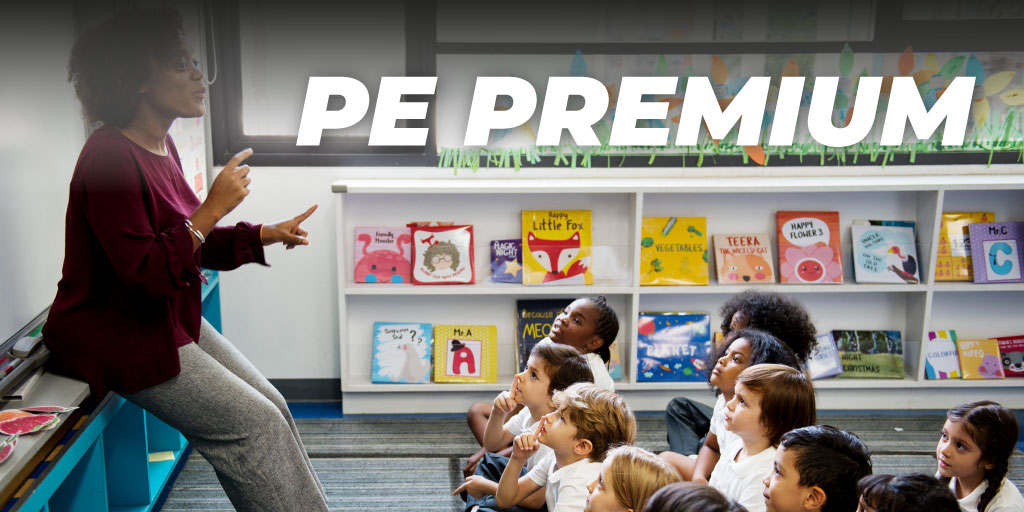The Pupil Premium was designed to enhance the PE curriculum for primary-aged children, as part of the legacy of London 2012. However, a piece of research authored by Vicky Ram, Senior Fellow at The University of Winchester and Gerald Griggs, Dean and Head of Academics at the University Campus of Football, placed a damning claim at its door. It was teachers and their capacity to teach PE that had been eroded.
The fund, which is worth around £18,000 to schools, met a need to improve facilities and teaching. As it expanded, it became a method of tackling a health crisis amongst children. Whilst CPD support for teachers is one of the objectives of the Premium, its primary concern is PE and school sport for children.
Changes to PE funding
The Pupil Premium has invested more than £2.2billion into Primary school PE in the last ten years. With the proceeds from a tax on sugary drinks, the fund increased to £320 million per year. In the last two years, however, confirmation of the fund has been inconsistent. According to many headteachers, the late and somewhat unclear messages sent by the government prevented comprehensive PE planning.
Whilst PE does remain the highest funded subject on the curriculum, which is because it had been previously underfunded in comparison to core subjects. The reporting requirements have left some teachers so starved for time that they copy and paste the previous reports to inform the next. Evidence of the use of the Premium must be given to Ofsted and posted online, alongside their normal reports, lesson plans, marking, and evaluations.
The authors draw on a well-known hierarchy that places academic subjects above physical or creative ones. They state the comparative investment in Maths of an extra £52 million over 9 years to the £2.2 billion over 10 years for PE. Ignoring that, obesity rates among 10-11 year-olds have notably increased by 4.5% from 2019-20 to 2020-21.
In the same years, pandemic restrictions increased poor learning goals in all subjects, but it was PE that suffered the most. A third of schools swapped PE and Music for academic subjects such as Maths and English, not because teachers lacked the experience to teach it, but rather because they lacked the space and resource.
Waning confidence and skill amongst teachers in PE
One of the core objectives of the Premium is to enhance teachers’ confidence and skill in teaching PE. 77% of sports coaching companies explicitly mention CPD support to teaching staff, specifically working to improve their confidence in teaching.
The Pupils Premium has been tasked with making up for the meagre training in the average teacher training course. Most primary school teachers have less than 5 hours of combined training in PE, an area the Lords Committee Report on PE, Sport and Physical Activity in 2021 singled out for reform. The report recommended that teacher qualifications have additional PE training to support their CPD, alongside what could be learned in schools.
Sports coaches have positive impacts on teaching and learning for teachers, but the problem is the lack of oversight concerning this objective. The research data refers to the ‘limited’ time allocated to monitor the effectiveness of the Premium, with the Inspection Handbook mentioning it only five times in its 73 pages. In practice, 81% of the investment was in upskilling and training for staff in 2014-15. And in a sample of 625 schools, 34.2% were taught by class teachers, not sports coaches.
Increased reliance on outsourced PE teaching
The last charge is that there were concerns raised about outsourcing PE to sports coaching specialists “who were not qualified to teach PE”. The All-Parliamentary report that made this conclusion, argued that “sports coaches/instructors with limited qualifications…[had] an imperfect understanding of key pedagogical matters”.
Sports coaches are not teachers and nor have they attempted to convince schools that they are. For those that work in the sector, it is establishing the significance of coaching as a vehicle for learning, not as a replacement for their teachers.
To become a certified Ofsted provider, sports coaching companies and their coaches must have at least 2 years in a primary school environment, with Level 2 qualifications in sports coaching, multi-skills, and safeguarding. Primarily, schools look for sports providers who have these credentials when they are making decisions about which services to use.
Sports coaching companies provide a new and unique experience to children. Providing enrichment and extracurricular sport where the teaching resource and equipment simply doesn’t exist. Any reliance on sports coaching companies is a product of a situation designed to create a better quality of PE and sport for kids when there is an existing issue of time and resources.
Conclusion
The Pupil Premium was never designed to change or decrease a school’s workload. Teachers are hugely overworked with massive amounts of reporting and paperwork, including, class and individual reports, CPD, marking, lesson plans & internal admin. The main barrier to teachers’ personal development is their workload, not the service provided by sports coaching companies.
Whilst continued development for teachers is part of the Premium’s remit, Ofsted has provided little oversight here. It’s impossible to prove that the Premium doesn’t help teachers because Ofsted hasn’t focussed on this indicator.
Any reliance on sports coaching providers is a consequence of helping to reduce a considerable workload and provide a necessary service. They have collaborated with schools to expand PE and school sport for thousands of children and have been a huge part of that success.



